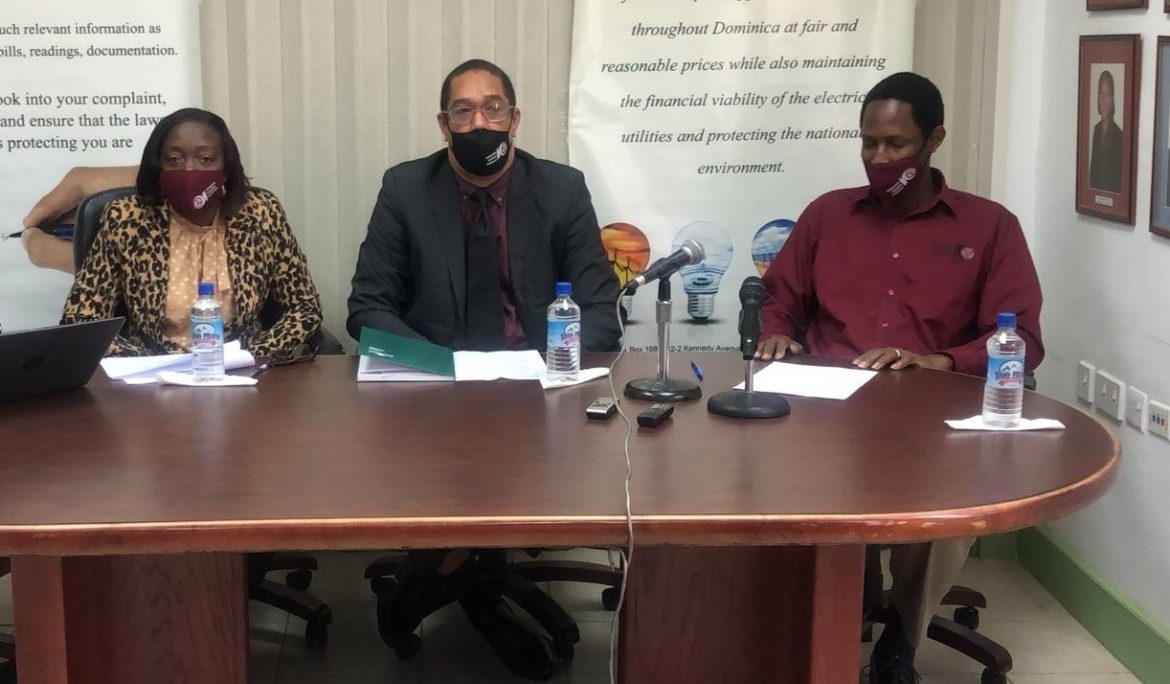
The Independent Regulatory Commission (IRC) is preparing to review electricity rates for Dominica Electricity Services Ltd. (DOMLEC).
As the regulator of the electricity sector in Dominica, the Electricity Supply Act No. 10 of 2006 empowers the IRC to review and approve electricity rates.
Speaking at a news conference on Thursday, March 17th, Executive Director of the IRC, Justinn Kase, explained that costs incurred by DOMLEC will guide the determination of electricity rates.
“Expectations of the exercise is that we will do our best to analyze DOMLEC’s expenses, capital investments and operational costs and all these different costs that are required for them to run their business and arrive at an affordable tariff for customers,” Kase stated.
A tariff review exercise is conducted to:
- Determine DOMLEC’s rate of return on their investment
- • ensure DOMLEC is meeting its revenue requirement (the amount of money that customers are required to pay for the cost of supplying electricity over the period.)
Financial Analyst, Connie Joseph-Louis, explained that the tariff review process begins when DOMLEC makes an application to the IRC for a review of electricity tariffs and its proposed electricity rates.
The IRC will also seek the input of various stakeholders, including consumers, before the decision on setting new rates. Joseph-Louis said the IRC will plan public consultations during the exercise.
“We will have a timeframe where the general public will be able to drop their responses or submit their responses online. The IRC will review the responses from the stakeholders – from the general public. Following this, IRC will then make a determination … whether the tariff will be approved, whether the tariff will be approved conditionally- that is with an amendment; whether the tariff will be rejected outright or whether the IRC will request new submissions of the tariff application,” she said.
The tariff review exercise will begin in April 2022. The process usually takes nine months to one year.
Utility Engineer of IRC, Felix Julien, says both economic and technical considerations will also be factored into the determination of electric rates.
“As part of the tariff process there may be some reasonable standards set for the company, in terms of levels of performance they have to meet in order to serve the public properly and to also ensure that the company is financially-sound … if the company is not financially-sound then society will suffer because we all need electricity – both reliable and affordable electricity.” Julien pointed out.
An electricity tariff is the charge that customers are required to pay per unit on electricity consumed.





